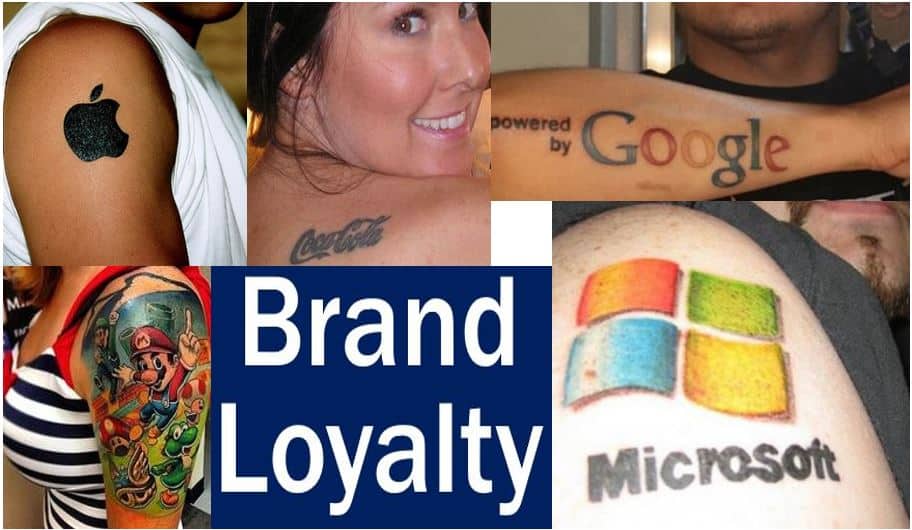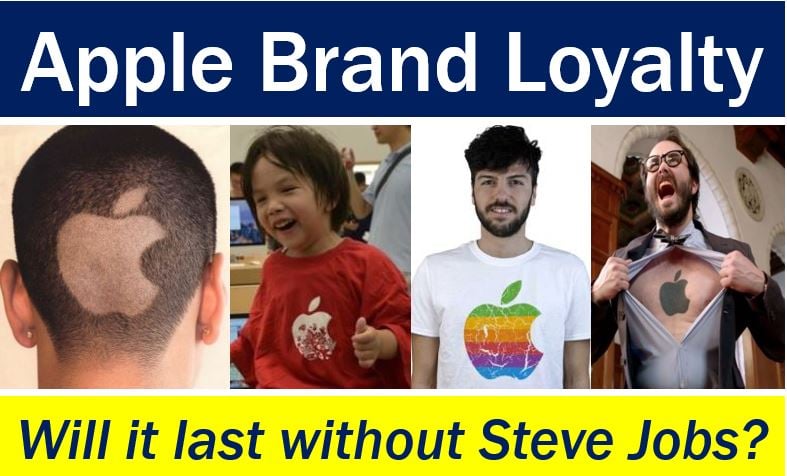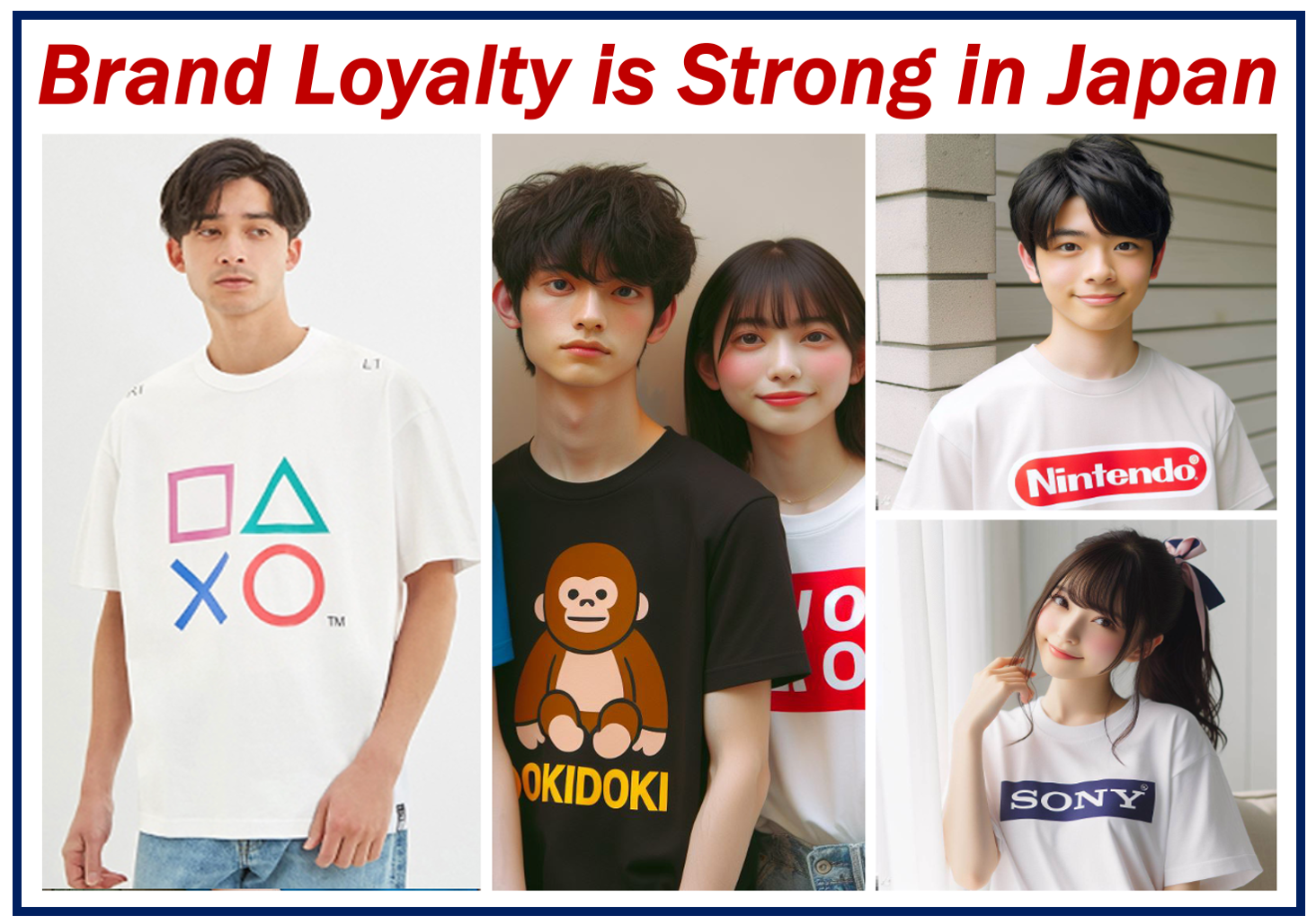Brand Loyalty is a term we use to describe consumer preference for a certain brand. In other words, when consumers prefer to buy a specific brand consistently. People will stick to a particular brand when considering some purchases. In fact, most of us do it for cheap goods like sweets and chocolates, and often for major purchases. It’s not uncommon for consumers to remain loyal to a single carmaker for decades.
Brand loyalty exists thanks to loyal customers. Brand loyalty usually takes many years to cultivate. In fact, it is worth gold!
The American Marketing Association defines brand loyalty as:
“The situation in which a consumer generally buys the same manufacturer-originated product or service repeatedly over time rather than buying from multiple suppliers within the category.”
The term is similar to habit buying. However, there is a slight difference. With habit buying, the consumer does not think about other brands much. The consumer with habitual buying behavior buys the same thing repeatedly due to a lack of dissatisfaction.
Although similar, the term has a different meaning from customer loyalty. Customer loyalty is much more about price and special offers.
Making and keeping a promise
Successful business owners say that building brand loyalty is about making a promise to people and delivering on it. In other words, if you make a promise and stick to it, you will get loyalty.
Above all, you must make sure that the consumer has a fantastic experience. It also involves connecting continuously with the customer. You need to do this to make sure you are doing the right things.
To be sure you are doing the right thing, you need to build up a database of your customers. It is crucial that you know who the customers are.
Additionally, you must know what they are thinking. Only then can you tailor your offering.
Your brand is the personality and image of your businesses’ products and services. It reflects how consumers perceive you.
Determining brand loyalty
You can determine brand loyalty by looking at consumer’s purchasing habits.
There are many reasons why people are loyal to a certain brand:
- They may not want to go through a decision process again.
- The brand provides excellent customer satisfaction. It may also provide unparalleled customer service.
- Consumers have a feeling of commitment to the brand.
- Some people are not keen to risk trying out something new. In other words, they are risk averse.
- Sometimes individuals buy the same brands simply out of convenience. We call this spurious loyalty.
However, true brand loyalty exists when consumers are willing to pay higher prices for a brand. True brand loyalty also exists when customers go out of their way for the brand. They do this because they think highly of the brand.
Companies benefit greatly from loyal consumers. Not only are customers willing to pay more for the brand, but they also improve its image through word of mouth. Word of mouth subsequently brings in more customers.

Coca-Cola’s brand loyalty
One of the best examples of a super brand is Coca-Cola. The Coca-Cola brand has a strategic edge over the competition because of brand loyalty.
In 2013, Interbrand ranked Coca-Cola the third most valuable brand in the world, with a value of nearly $73 billion – not including company distribution, bottling, and manufacturing facilities.
The most valuable brand is Apple. In fact, in 2016, the four most valuable brands were all of tech companies.
-
The Coca-Cola brand
The Coca-Cola brand is worth tens of billions of dollars partly because of brand loyalty. It has managed to develop and sustain brand loyalty because:
- Coca-Cola has been available for over a century. This long period gives satisfied customers a chance to buy their products again.
- The brand has symbols for consumers to link to past satisfaction. ‘Symbols’ refers to the bottle design, logos, etc.
- Through advertising, Coca-Cola reinforces and reminds consumers of their past satisfaction with the brand.
- These factors, among others, instill a positive image of Coca-Cola among consumers.
Successful brand loyalty is about maintaining the interest of consumers.

Brand ambassadors
Companies with a large, loyal customer base also cultivate brand ambassadors. Brand ambassadors are consumers who will market a specific brand. In other words, they will say nice things about it to their friends.
Nearly everybody has a relative, friend, or work colleague who swears by Apple products. Apple brand ambassadors are forever praising the company as well as its founder the late Steve Jobs.
Today, they also praise the company’s current CEO Tim Cook. Furthermore, all its brand ambassadors praise what the whole Apple company stands for.
Brand ambassadors are examples of word-of-mouth marketing. This is marketing that costs no money. Brand ambassadors contribute considerably to a company’s sales.
Brand loyalty – a business priority
An article in Bloomberg Businessweek –The Importance of ‘Brand Humanity’ for Customer Loyalty – highlights the importance of brand loyalty in pushing companies to success.
When brands give the impression that their goal is to make money, customers are less likely to trust it.
For a brand to enjoy healthy brand loyalty, it has to prove that its priorities include individual customer relationships.

Lifelong brand loyalty
From the day we are born, adverts that convey a feeling of happiness and fun target us. We first hear messages about food products and toys. Many of these ads influence us for the rest of our lives.
Researchers from the University of Arizona and Stony Brook University carried out a study that showed that lifelong brand loyalty is pervasive.
The researchers wrote:
“Our research provides an initial investigation into how exposure to ads in childhood can lead to enduring biases that favor products associated with the ads once the kids grow up.”
Market Attrition occurs when brand loyalty erodes due to the absence of effective promotions. We also call it customer turnover, customer attrition, customer defection, and customer churn.
Brand Loyalty – related vocabulary and concepts
In the world of brand management, there are many terms that either mirror the meaning of ‘brand loyalty’ or closely align with its concept. Here are seven of them, their meanings, and examples of how we can use them in a sentence:
-
Brand Affinity
The emotional connection a consumer has with a brand, often based on shared values.
Example: “Our eco-friendly practices have greatly improved our brand affinity among environmentally conscious consumers.”
-
Customer Loyalty
The tendency of customers to return to a business repeatedly over time.
Example: “Our latest survey shows high customer loyalty, with most clients using our services for over five years.”
-
Brand Allegiance
A strong commitment to a brand, often to the extent of advocating for it.
Example: “Our fans’ brand allegiance is evident in their enthusiastic word-of-mouth promotion.”
-
Brand Attachment
The emotional bond between a consumer and a brand.
Example: “Our brand attachment has grown significantly since we started focusing on community-based initiatives.”
-
Consumer Loyalty
Similar to customer loyalty, it emphasizes a consumer’s consistent preference for a brand’s products or services.
Example: “Our annual sales reflect a strong consumer loyalty, thanks to our quality products and excellent customer service.”
-
Brand Commitment
A consumer’s enduring dedication to a brand, often despite market changes.
Example: “The brand commitment of our customers is remarkable, with many refusing to switch to competitors, even with cheaper options available.”
-
Brand Devotion
An intense emotional connection to a brand that manifests as staunch support over time.
Example: “Our latest product launch was a success, largely due to the brand devotion of our core users who lined up hours before the store opened.”
Two Educational Videos
These interesting and informative videos, available on our affiliated YouTube channel Marketing Business Network, provide clear and easy-to-understand definitions of the terms ‘Brand Loyalty’ and ‘Brand.’
-
What is Brand Loyalty?
-
What is a Brand?
